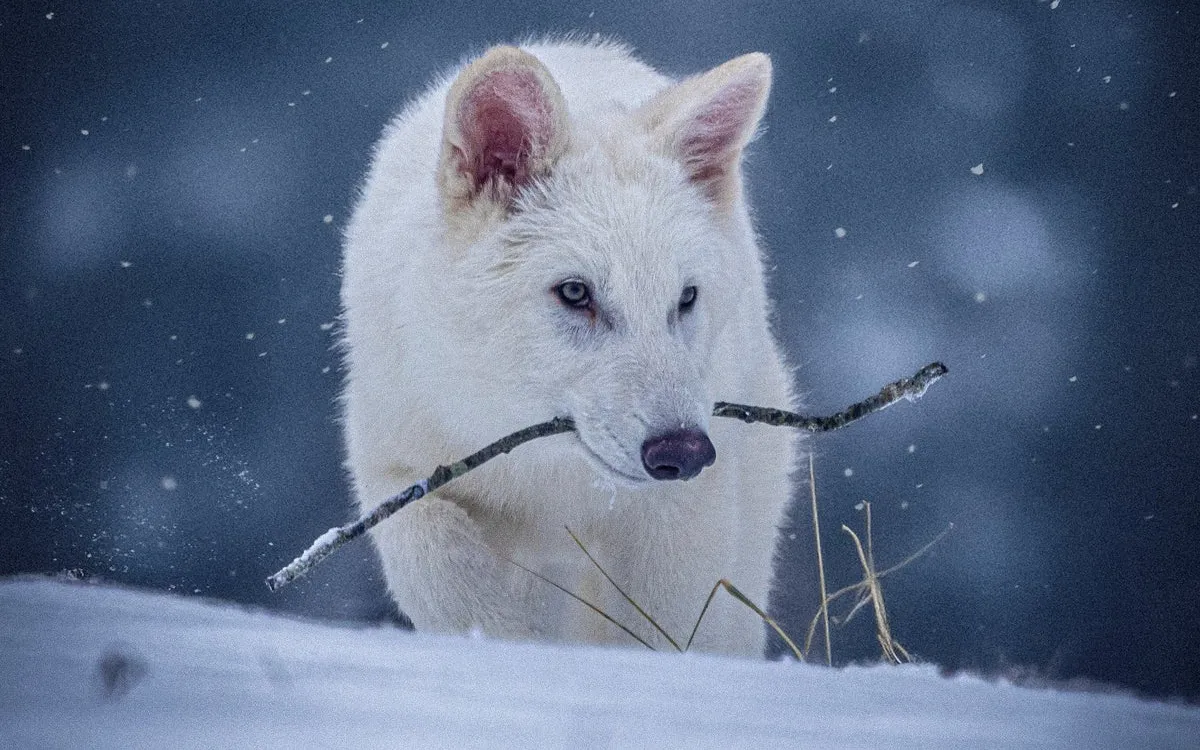
The dire wolf, a species that has been extinct for over 10,000 years, has made a sensational comeback thanks to a groundbreaking announcement by a U.S. biotech start-up. Colossal Biosciences, based in Texas, revealed on Monday that its team of researchers successfully birthed three modern dire wolf pups. Among them are two six-month-old males, named Romulus and Remus, and a three-month-old female, Khaleesi. This remarkable achievement has piqued the interest of both scientists and fans, particularly due to the dire wolf's recent surge in popularity from the hit TV series, Game of Thrones.
Colossal Biosciences achieved this milestone through advanced cloning and gene-editing techniques, utilizing two ancient DNA samples from dire wolves. Ben Lamm, the CEO of Colossal, described the project as a “massive milestone,” stating, “I could not be more proud of the team. This achievement is just the beginning, showcasing our end-to-end de-extinction technology stack.” The process involved extracting DNA from a 13,000-year-old tooth and a 72,000-year-old skull, ultimately resulting in the birth of healthy pups.
According to Colossal’s researchers, the de-extinction process began with blood cells taken from a living grey wolf, the closest relative of the dire wolf. These cells underwent genetic modifications at 20 different sites. The modified DNA was then transferred to an egg cell from a domestic dog, and the embryos were subsequently implanted into surrogate mothers for gestation. Dr. Beth Shapiro, Colossal’s chief science officer, emphasized the innovative nature of this approach, stating, “Our novel method to iteratively enhance our ancient genome in the absence of a perfect reference sets a new standard for paleogenome reconstruction.”
The dire wolf is characterized by its light, thick fur and muscular jaws, making it significantly larger than the modern grey wolf. Colossal has committed to ensuring that these magnificent animals will thrive in a continuously monitored, secure ecological preserve. This preserve is certified by the American Humane Society and registered with the U.S. Department of Agriculture, ensuring the pups will be well cared for in a safe environment.
As an iconic creature in fantasy settings, the dire wolf has been featured in various pop culture references, including role-playing games like Dungeons & Dragons and video games such as World of Warcraft. However, its rise to fame can largely be attributed to the HBO series Game of Thrones, inspired by the works of author George R.R. Martin. Martin, who is also an investor and cultural adviser for Colossal, remarked, “Many people consider dire wolves to be mythical creatures from fantasy, but they have a rich history within the American ecosystem.” He praised the team at Colossal, stating, “While I write about magic, Ben and Colossal have created real magic by bringing these majestic beasts back to life.”
In addition to the dire wolves, Colossal Biosciences has also announced the successful cloning of four red wolves using blood drawn from the critically endangered red wolf population in the southeastern U.S. This initiative aims to enhance genetic diversity within this small captive population, providing scientists a vital tool in their efforts to save this endangered species.
Colossal Biosciences’ groundbreaking work not only highlights advancements in biotechnology but also underscores the potential for de-extinction to contribute meaningfully to conservation efforts. As research continues, the possibility of reviving other extinct species may no longer be a distant dream.